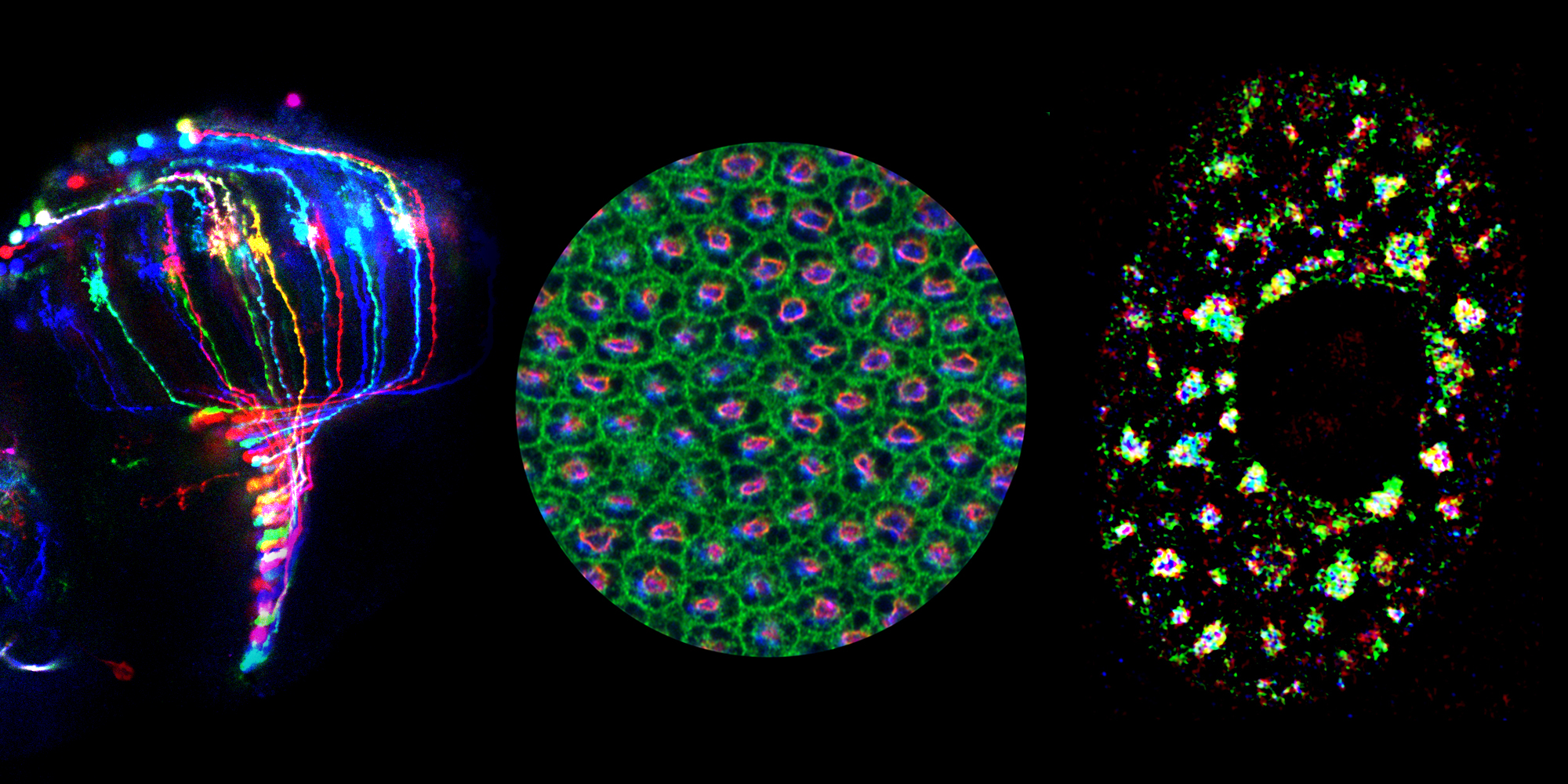The Department of Cell & Developmental Biology offers exciting opportunities for graduate students to become skilled and creative biologists. Our program is designed to set the foundation for a future scholar or industry leader to uncover new knowledge in the field, critically analyze scientific data in the molecular life sciences, communicate the significance of biological phenomena to expert and lay audiences, and lead research and development efforts to enhance human health. Most of our graduates pursue careers in academia or pharmaceutical and biotech industry.
Current faculty research programs encompass broad areas of cutting-edge cell and developmental biology, including cancer biology, regenerative biology, neurobiology, chromatin biology, epigenetics, and genomics.
Student training includes a combination of course work, independent research, and seminars. In addition, the graduate experience includes exposure to research ethics, career development, and the important role of diversity, equity, and inclusion in research and teaching. The educational experience is further enriched by the multinational composition of students in our program.
All of this takes place at a major research university with state-of-the-art facilities and excellent faculty located in a micro-urban environment in central Illinois that is manageable, affordable, diverse, and an intellectual community that maintains small town collegiality. The Champaign-Urbana area hosts numerous cultural events throughout the year and is home to the world-class Krannert Center for the Performing Arts.
Request information Apply Degree requirements CDB Graduate Student Handbook For current CDB PhD students
Title
Meet the CDB community
Temirlan Shilikbay, a PhD candidate in the Department of Cell & Developmental Biology at the University of Illinois Urbana-Champaign, shares what he enjoys about his research and the opportunities his field has to offer.
Admission
The Department of Cell & Developmental Biology is part of the School of Molecular & Cellular Biology. Prospective students should apply to the umbrella MCB PhD Program.
Students entering the program come from a wide range of backgrounds but most frequently from biology, chemistry, or physics. Admission is based on a combination of GPA, strength of the personal statement, laboratory research experience and letters of recommendation. Letters from referees that describe the applicant’s potential as a future researcher and scholar in the field tend to carry significant weight in the admissions process. Previous research experience as an undergraduate, master’s student, or through employment is valued highly as one of our criteria for admission. However, there is no formula or checklist for admission. Rather, students are admitted who have the potential to excel in our program and develop into lifelong scholars.
Once admitted into MCB, you can choose from available laboratories run by CDB faculty members and others in MCB as your thesis lab. During the first semester, you will rotate through three laboratories of your choice to learn about the research programs, at the end of which you will undergo a matching process between yourself and prospective faculty thesis advisers in MCB. Ultimately you will choose a laboratory from among those who offer a position. If you select a CDB faculty as your PhD thesis adviser you will then formally join the CDB graduate program by the spring semester of the first year.
Detailed requirements and guidance for obtaining your PhD in Cell and Developmental Biology can be found in the CDB Graduate Student Handbook.
Title
State-of-the-art facilities
The Department of CDB contains all of the equipment appropriate for modern biological research, including a microscopy facility. The school houses additional research facilities and support services. The campus also provides many state-of-the-art core facilities, from the Beckman Institute to the Woese Institute for Genomic Biology.
Financial support
Financial support is provided for the duration of your graduate studies at the university, as long as you maintain satisfactory standing in the graduate program. Entering students, depending upon their qualifications, may be awarded a departmental fellowship, be placed into competition for a university fellowship, or receive a research or teaching assistantship with accompanying tuition and fee waiver. Financial packages combining two or more of these resources are frequently offered to outstanding applicants. As a continuing student, you will customarily derive your financial support from either research or teaching assistantships.
Post-graduate careers
Many students graduating with a PhD from CDB laboratories choose to extend their training as postdoctoral fellows in top research labs around the country and the globe, after which they pursue careers in academia, pharmaceutical and biotech industry, scientific publishing, or other medical/scientific fields. Some of our alumni have also directly entered the pharmaceutical/biotech industry.
Read more about where our CDB graduates go after earning their doctoral degrees from UIUC.
Contact us
Shawna M. Smith, School of MCB Graduate Program Coordinator
Lori Raetzman, Associate Director of MCB Graduate Program
mcb-grad@illinois.edu; 217-333-1737
Stephanie Ceman, Professor and Director of Graduate Studies, Department of Cell & Developmental Biology
sceman@illinois.edu
Supriya Prasanth, Professor and Head, Department of CDB
supriyap@illinois.edu; 217-244-8076
